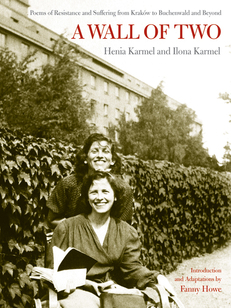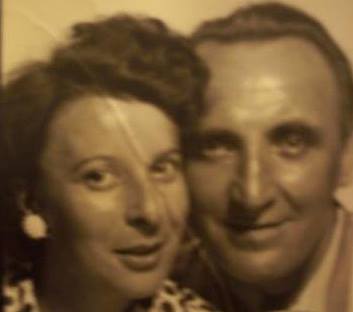
In honor of Ilona Karmel & Henia Karmel-Wolfe
A few weeks ago I attended a Passover seder on the theme of social justice. We sat around the table talking about Malcolm X, Gandhi, Moses, and eventually Anielewicz. We read his last letter and spoke about “Jewish resistance.” We contemplated the age-old question of “what in the world would you, in this day and age, be willing to rise up against?” The conversation orbited around political action and reform, about dedicating one’s life to fighting back, about emulating Anielewicz’s ghetto uprising in the fight to combat institutional racism in the American education system through protest and organizing. It was all very wonderful and it was all very unsettling.
As I listened I couldn’t help but think about my great aunt Ilona Karmel, the novelist, teacher, and poet. She was born in Krakow before the war and survived with her sister, my grandmother, despite being run over by a tank during a death march in the twilight of German’s rule over Poland. I thought about how she and my grandmother wrote poems in the concentration camp and hid them by sewing them into the hems of their skirts. I thought about how when the tank crushed their legs and killed their mother in front of them they tore open their skirts and gave the poems to a cousin who left them for dead. I thought about how they survived. I thought about my grandfather being handed the poems in the days after liberation and what he must have felt clutching the body of their work, the art of their suffering.
A few weeks ago I attended a Passover seder on the theme of social justice. We sat around the table talking about Malcolm X, Gandhi, Moses, and eventually Anielewicz. We read his last letter and spoke about “Jewish resistance.” We contemplated the age-old question of “what in the world would you, in this day and age, be willing to rise up against?” The conversation orbited around political action and reform, about dedicating one’s life to fighting back, about emulating Anielewicz’s ghetto uprising in the fight to combat institutional racism in the American education system through protest and organizing. It was all very wonderful and it was all very unsettling.
As I listened I couldn’t help but think about my great aunt Ilona Karmel, the novelist, teacher, and poet. She was born in Krakow before the war and survived with her sister, my grandmother, despite being run over by a tank during a death march in the twilight of German’s rule over Poland. I thought about how she and my grandmother wrote poems in the concentration camp and hid them by sewing them into the hems of their skirts. I thought about how when the tank crushed their legs and killed their mother in front of them they tore open their skirts and gave the poems to a cousin who left them for dead. I thought about how they survived. I thought about my grandfather being handed the poems in the days after liberation and what he must have felt clutching the body of their work, the art of their suffering.

 RSS Feed
RSS Feed
